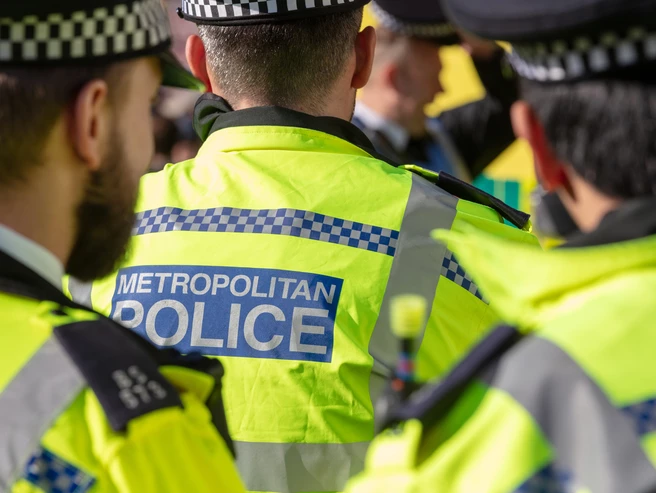On Wednesday a Met tribunal found two officers, who shared images of the bodies of Bibaa Henry and Nicola Smallman, guilty of gross misconduct and advised that they would likely be looking at jail time when they are due to be sentenced in December. Jamie Lewis and Deniz Jaffer took images of the sisters’ bodies when they were assigned to protect the crime scene where they had been murdered in June last year and shared them to a WhatsApp group of around 40 officers.
The Independent Office for Police Conduct is also investigating five serving officers as well as a former officer, who have been accused of sharing messages that were allegedly misogynistic, racist and homophobic in a WhatsApp group, which includes former officer Wayne Couzens – who plead guilty to the murder of Sarah Everard in June this year.
Speaking to the London Assembly Police and Crime Committee in October, Cressida Dick admitted there is “unwitting sexism” within the ranks of the Metropolitan police and that the force needs to “improve and do better”. Her statements come as the Met begins to implement a number of reactionary measures designed to rebuild trust in the force, after originally trying to characterise violence against women at the hands of Met officers as the actions of the occasional “bad ’un”.
In September it was reported that more than 750 police employees have faced allegations of sexual misconduct since the year 2010, with only 83 having been dismissed and on Tuesday the Metropolitan police announced that 50 investigators will be brought in to work with the Met’s professional standards department to review “around 300 cases where allegations have been made against Met officers.”
In a document published 8 October titled ‘Rebuilding Trust in Police Standards’ the Met details its priorities in advance of an external review into its standards and internal culture, which include “an urgent review of all current investigations into allegations of sexual misconduct and domestic abuse against our officers and staff” and “Operation Signa – an internal programme to ensure our people actively intervene and challenge inappropriate behaviours built on the feedback of women in the Met, to increase confidence of reporting sexual harassment and unacceptable conduct.”
The Met has a history of reprimanding staff who report their colleagues for misconduct and it is unclear what measures will be implemented through Operation Signa but last week, deputy commissioner Stephen House told the Police and Crime Committee that Met Police officers who report their colleagues are not automatically entitled to anonymity. When asked if this would prevent Met officers and staff from reporting inappropriate behaviour or misconduct, he replied “No. I joined the police to lock bad people up, whether they’re in uniform or not, and most of my colleagues are the same, so they would take pride in the fact that they’ve done that sort of thing and done some good for the organisation.”
Speaking to the BBC in September, former Chief Superintendent Parm Sandhu said that she was “vilified” for speaking up about an incident that involved one of her male colleagues and that women in the Met fear reporting misconduct, “the fear that most women police officers have got is that when you are calling for help they’re not going to turn up and you’re going to get kicked in in the street.”
In 2014 a police officer said he was forced to resign after he made disclosures about manipulated crime figures within the Metropolitan police, that meant sexual offences including serious crimes were being underreported by 22-25%. PC James Patrick was subjected to gross misconduct proceedings as a result of his claims, that serious sexual offences, including child sex abuse were being wrongly recorded as non crimes or ‘crime-related incidents’. He told the BBC: “My experience led me to see just how flawed the whistle-blowing system is, how it fails, but also to firmly believe that no police officer should normally resign or retire while subject to any misconduct investigation; but the circumstances are such that I have no choice.”
As a result of Patrick’s disclosures the Met lost its gold-standard “national statistics” status, which was withdrawn by The UK Statistics Authority. In his personal blog Patrick states that “the way crime is recorded and investigated in England and Wales was permanently changed and government-imposed targets were abolished.” The manipulation of crime statistics was investigated by the Public Administration Select Committee, whose chair at the time Bernard Jenkin said “The most depressing part of our inquiry is the way in which the Metropolitan police have treated my constituent, PC James Patrick, who was our key witness.”
Within the committee’s report, titled ‘Caught red-handed: Why we can’t count on Police Recorded Crime statistics’ it states that “Police forces and local policing bodies should ensure that there are adequate systems in place to support and protect people serving with the police who want to raise concerns about the conduct of their colleagues. This might include extending confidentiality to anyone raising such a concern, as far as this is possible and appropriate.”
Patrick’s disclosures underpin the fundamental need for adequate whistleblowing policies, which allow officers to report misconduct without fear of reprisal. Though changes were made to the Met’s policies following the report in 2014, not all of the recommendations were met, including that of confidentially and some of the changes laid out in the 2016 ‘Guidance for Protection of Whistleblowers’ have not been strictly adhered to, namely that officers who make protected disclosures should not be subject to reprisals.
In September 2021, a former officer told press that she had a job offer withdrawn after reporting that graphic images and videos of women had been shared in a WhatsApp group amongst digital policing staff, similar to the ones that Lewis, Jaffer, Couzens as well as the five officer’s under investigation were a part of. As a result of her disclosures, an internal investigation took place but after concluding in 2019, it found that no misconduct had taken place. Paige Kimberly told an employment tribunal that “The rejection of my complaints, the cover-ups, the denials, and the spinning of completely fabricated justifications for my treatment have been deeply troubling.”
The lack of alarm from senior police officials when alerted about the nature of messages being shared within WhatsApp groups, such as the one Couzens was a part of, reflects a wider culture of misogyny and sexism that has been normalised within the Met and Cressida Dick’s refusal to characterise the apparent sexism as anything other than ‘unwitting’ or unintentional, shows that she is unable to recognise the violence that misogyny often leads to.
Jaysen Veeran, who worked in the serious misconduct investigation unit of the Directorate of Professional Standards told The Times that senior police staff attempted to cover up misconduct and that his inquiries faced interference from within the police force. He says that when investigating an officer who abused his position of power by having sexual relationships with victims of rape and sexual assault, he was asked to justify his work to a detective chief inspector who described the inquiry as a “witch-hunt”. He also claims that Met officers accused of sexual assault were allowed to continue patrolling as long as they wore body-cams because of police officer shortages.
Without whistleblowing, we would know a lot less about institutional racism, homophobia and sexism in the Met, the conspiracies of senior officers, the manipulation of crime statistics or the sexual assault allegations against patrolling police officers. The Met must put an end to its culture of cover up and create meaningful protections for whistleblowers, if it is to appear serious about the misogyny within its ranks.

